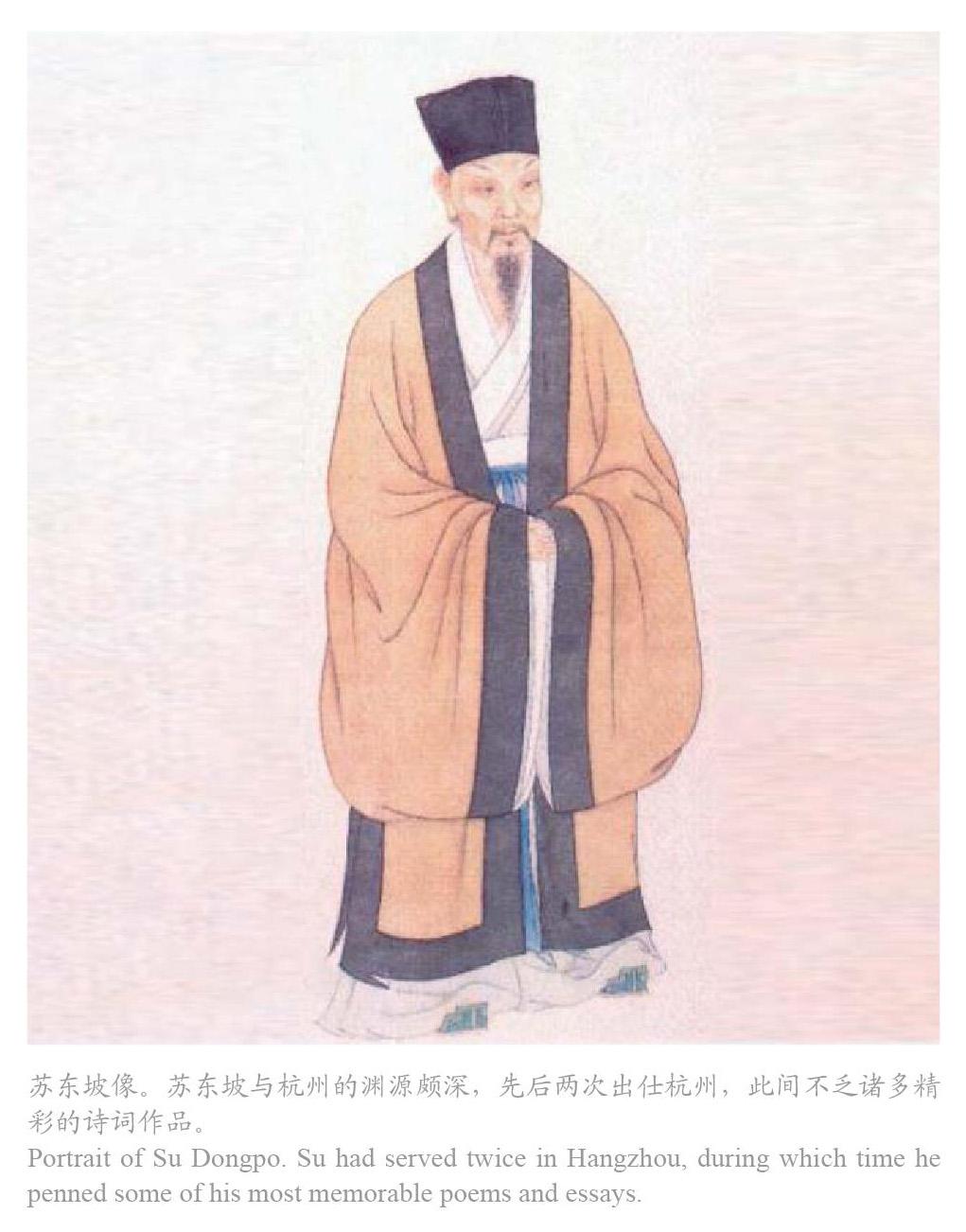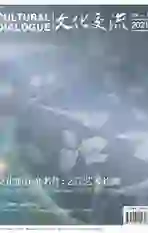孤山寺迹何处寻
2021-09-24司马一民
司马一民



说到描写杭州西湖景色脍炙人口的诗,唐代白居易的《钱塘湖春行》肯定是其中之一:“孤山寺北贾亭西……”
年少时读这首诗,对“孤山寺”三个字并不在意,前时去孤山,进中山公园大门,走栈道看清行宫遗迹,随口吟诵“孤山寺北贾亭西……”忽然想:孤山寺在哪里?上孤山寻了一圈,未见有任何遗迹。既然白居易有“孤山寺北贾亭西”诗句,孤山上肯定曾经有过孤山寺。
查阅史料、翻阅古诗文,有关孤山寺的诗还真不少。除了《钱塘湖春行》,白居易还有《西湖晚归回望孤山寺赠诸客》《孤山寺遇雨》。而与白居易同时代的张祜(785—849年,字承吉,清河人,隐士)则写有《题杭州孤山寺》:楼台耸碧岑,一径入湖心。不雨山长润,无云水自阴。断桥荒藓涩,空院落花深。犹忆西窗月,钟声在北林。
张祜这首诗对孤山寺有细致描述:高耸的楼台建在陡峭的山上,一条小路直通湖心中央;即使不下雨山色也经常郁郁葱葱,哪怕没有云彩水面也是湛蓝湛蓝的;远处断桥上长满了斑驳的苔藓,近处院落里铺满了落花;想起当年在西窗望月时的情景,悠扬的钟声从山北的林中传来。
与白居易同时代的许浑(约791—858年,字用晦,润州人,多写田园诗)写有《夜归孤山寺却寄卢郎中》:青山有志路犹赊,心在琴书自忆家。醉别庾楼山色晓,夜归萧寺月光斜。落帆露湿回塘柳,别院风惊满地花。他日此身须报德,莫言空爱旧烟霞。
许浑这首诗描述了作者夜归孤山寺的情景。“夜归”二字表示作者寄宿孤山寺已非一日。可见在唐代,孤山寺僧人就与文人学士多有交往。
几百年以后,到了宋代,孤山寺僧人仍然与文人学士多有交往。北宋林和靖即林逋(967—1028年),字君复,钱塘人,幼时刻苦好学,通晓经史百家,后隐居西湖孤山,养鹤植梅,宋仁宗赐谥“和靖先生”,他写有《孤山寺》:云峰水树南朝寺,祇隔丛篁作并邻。破殿静披虀臼古,斋房闲试酷奴春。白公睡阁幽如画,张祜诗牌妙入神。乘兴醉来拖木突,翠苔苍藓石磷磷。
在林和靖笔下,古朴的孤山寺仍然留有白居易和张祜的踪迹。
林和靖还有一首《孤山寺端上人房写望》:底处凭阑思渺然,孤山塔后阁西偏。阴沉画轴林间寺,零落棋枰葑上田。秋景有时飞独鸟,夕阳无事起寒烟。迟留更爱吾庐近,只待重来看雪天。
林和靖在孤山寺端上人房间里凭栏远眺:透过阴郁的树林,隐隐约约可看见寺院,水面上一块块的架田(即葑田)零星地飘着,好似棋盘上的方格子。夕阳下这里很安静,农失们都已荷锄归家了,远处炊烟袅袅,偶尔飞过一只小鸟。我喜爱这个与自己家相近的地方,可以迟一点回家。等到雪花纷飞时,再来这里观赏雪景。
林和靖隐居地与孤山寺同在孤山,他能进入端上人房内饱览湖光山色,可见他与僧人多有交往。
苏东坡也与孤山寺僧人有交往,他的《腊日游孤山访惠勤惠思二僧》,记录了大冬天里上孤山寺的情形 :天欲雪,云满湖,楼台明灭山有无。水清出石鱼可数,林深无人鸟相呼。腊日不归对妻孥,名寻道人实自娱。道人之居在何许?宝云山前路盘紆。孤山孤绝谁肯庐?道人有道山不孤。纸窗竹屋深自暖,拥褐坐睡依团蒲。天寒路远愁仆夫,整驾催归及未晡。出山回望云木合,但见野鹘盘浮图。兹游淡薄欢有余,到家怳如梦遽遽。作诗火急追亡逋,清景一失后难摹。
熙宁四年(1071年),苏东坡上书批评新法的弊病得罪王安石,十二月被贬往杭州任通判,他游孤山访惠勤、惠思后作此诗,惠勤、惠思都是余杭人,都擅长写诗。
这首诗大意为:西湖上空阴云密布,将要下雪;远处的楼台与青山隐隐约约,似有似无。山中溪水清清,可以看见水底的鹅卵石,那些游来游去的鱼清晰可数;幽深的树林看不见人的踪迹,只有鸟鸣与我相应。今天是腊日,我不在家陪着妻子儿女,说是去寻访僧人,其实是寻找快乐。僧人的禅房在哪里?就在小道狭窄弯弯曲曲的宝云山前。孤山孤独地耸立在那里,有谁愿意住在这孤独的地方?只有道行高深的僧人,居住在孤山,而不觉得孤单。虽然窗纸薄、竹屋透风,却仍然感到很暖和,惠勤与惠思,他们裹着僧衣,在蒲团上打坐修行。天寒路远,仆人催我赶快回家,告别惠勤与惠思时,还没有到晚餐的时候呢。离开孤山回头眺望山中景色,树林被厚厚的烟云笼罩着,野鹘在佛塔上空飞翔盘旋。这次出游孤山虽然简单,但我心中感到非常快乐。回到家中还神思恍惚,真像是刚从梦中醒来的那样,不过出游的经历还历历在目。我急忙提笔写下了这首诗记录出游孤山的经历,唯恐稍有延迟,那些清丽的景色会从我脑海中消失,再也无法描摹。
苏东坡虽然是初次造访孤山寺,对孤山寺的喜爱已经流露于笔端,当然也可能与惠勤、惠思很投缘。
孤山寺确实在中唐就有,不仅古诗中有描述,史料中也有记载,我们从白居易的好友元稹的《永福寺石壁法华经记》中可以略知一二:“按沙门释惠皎自状其事云:永福寺一名孤山寺,在杭州钱塘湖心孤山上。石壁《法华经》在寺之中,始以元和十二年严休复为刺史时惠皎萌厥心,卒以长庆四年白居易为剌史时成厥事。上下其石六尺有五寸,短长其石五十七尺有六寸,座周於下,荩周於上,堂周於石,砌周於堂。”(《全唐文》卷六百五十四)。
至于孤山寺何时湮灭,未知。南宋时孤山建有西太乙宫、四圣延祥观,后湮灭。到了清代,康熙、乾隆时,孤山建有行宫,至今遗迹尚在。
(作者系杭州市政协智库专家、文史专家
Gushan Temple: Where Art Thou?
By Sima Yimin
When people think of popular poems on the sceneries of the West Lake, one that invariably springs to mind is A Springtime Walk by the Qiantang Lake or Qiantang Hu Chunxing, by the Tang (618-907) poet Bai Juyi (772-846). As the governor of Hangzhou, it is little surprise that Bai wrote extensively on the city and the West Lake, alternatively known as the Qiantang Lake.
“North of the Gushan Temple and west of the Jia Pavilion,” the first line of the poem goes. While most in China are able to recite it and the entire poem, few perhaps have dug deeper and gone a step further: exactly where is the Gushan Temple?
As its name and the poem suggest, the temple is supposed to be on Gushan, or the Solitary Hill. However, it is now nowhere to be found around the hill. So where is it? Or more precisely where was it?
References to Gushan Temple abound in historical records and poems. Apart from A Springtime Walk by the Qiantang Lake, Bai Juyi also composed two other poems about the temple. In On the Gushan Temple in Hangzhou, Zhang Hu (785-849), a contemporary of Bai, reminisced about the place after his travels there:
Above the green ridge a pavilion rises, and to the heart of the lake a path winds.
Without rain the hills moist stays, and without clouds the waters cool remains.
On the Broken Bridge mosses scatter, and in the empty courtyard fallen flowers gather.
Still remember the bright moon by the western window, and the bells in the northern forest below.
Zhangs poem indicates there were a number of temples on the hill and Gushan Temple was only one of them, whose monks were in close contact with poets and literary figures like Bai and Zhang, as Xu Hun (791-858), another poet at the time, wrote, “Bidding adieu to the tavern at daybreak after drinking all night, the moon is already setting as I return to the temple.” Apparently, Xu had been put up at the Gushan Temple for some time.
About two centuries later, in the Song dynasty (960-1279), the Gushan Temple was still one of the favorite places that literati frequented. Indeed, the names of Bai Juyi and Zhang Hu were mentioned as well now and then in their writings. Lin Bu (967-1028), that great Song hermit who had been single all his life and had famously taken plum trees as his wives and cranes as his sons, spoke glowingly of them in his poem Gushan Temple: “Honorable Bais bedchamber is as serene as a painting, and Zhang Hus verses are as ingenious as they are enthralling.”
In fact, the Song poets and scholars were in close touch with the monks of the Gushan Temple, too. “Thoughts fly high and above as I lean upon a balcony looking far, in a western chamber behind the tower on the Solitary Hill,” in another poem, Lin wrote of his looking into the distance in a monks room at the temple.
Then there was Su Shi (1037-1101), aka Su Dongpo, whom it would be a great remiss not to mention. In the year 1071, Su was exiled and took up the post of assistant prefect of Hangzhou as he was embroiled in factional fights in the imperial court.
In the 12th lunar month of the same year, Su penned a poem after visiting two monks on the Solitary Hill. In Traveling to the Solitary Hill and Visiting the Two Monks Huiqin and Huisi on Laba Festival, he described:
The sky portends snow, as clouds drape over the lake.
Pavilions and towers light up and dim down, as hills emerge and submerge.
Rocks surface from clear waters that fish can be counted.
Deep in the forest no one but birds echo on another.
On the Laba Festival, to be with my family I am not.
I say Im seeking out men of the Way but its more to have some fun.
These men of the Way, where are their abodes?
A winding path at the foot of the Precious Cloud hill points to the way.
The Solitary Hill is such a lonely place that whod lodge here?
But men of the Way, having the Way, make the hill not so lonely.
Paper rooms and bamboo rooms keep them warm,
In coarse clothes, they sit and sleep on futons.
It is cold and the road long, worrying my servant.
He readies my coach and urges me to return home before dusk.
Leaving the hill, I look back at where the trees meet the clouds,
All I see are wild falcons circling the pagoda.
Its been a simple journey, but gives much joy.
Coming home, Im all dazed as if in a trance.
Quickly I write down this poem before the images escape my mind,
For a pure scene, once lost, will be hard to recapture.
Although it was the first time that he had visited the Gushan Temple, Su Shi evidently took an immediate liking to the place, either because of the scenery or his pleasant talks with the two monks.
While historical records and literary references such as the above poems clearly show that the Gushan Temple had already been there during the mid-Tang and flourished well into the Song dynasty, it remains unclear when exactly the temple fell.
